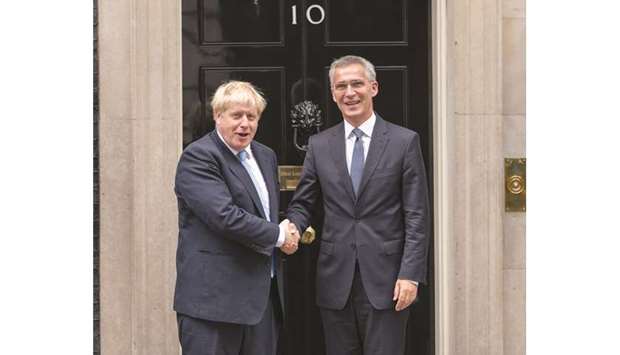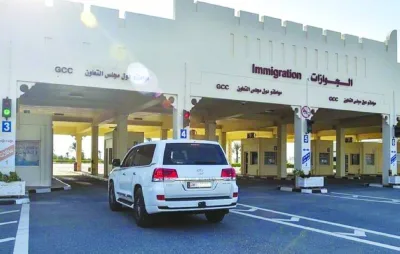Boris Johnson appears to be on the brink of reaching a Brexit deal after making major concessions to EU demands over the Irish border.
A draft text of the agreement could now be published today if Downing Street gives the final green-light, according to senior EU and British sources.
It is understood that the negotiating teams have agreed in principle that there will be a customs border down the Irish Sea. The arrangement was rejected by Theresa May as a deal that no British prime minister could accept.
Johnson will still have to win over parliament – including the Democratic Unionist Party (DUP) and the hardline Tory Brexiters, the European Research Group – on the basis that, under the deal, Northern Ireland will still legally be within the UK’s customs territory.
“Northern Ireland would de jure be in the UK’s customs territory but de facto in the European Union’s,” one diplomatic source said of the tentative agreement.
The prime minister will be able to boast that the UK “whole and entire” has left the European Union.
Sources in Brussels said they were confident that the commission and UK negotiating team would land the deal overnight. But as negotiations continue, there is nervousness in Paris and Berlin about the rush to find a deal for the EU27 leaders to sign off at tomorrow’s summit.
Speaking in Paris, a senior French official advised “extreme prudence” about the chances of a deal being struck that would satisfy the EU’s capitals.
“It’s not the Irish who will make the deal. Yes, there are better atmospherics, but what matters is the content, and we have seen nothing yet. Whatever it is, we will want to look at it in very serious detail.” German government officials said reaching a deal this week was an ambitious target and that agreeing on the technical issues could require another two months of talks unless the UK made significant enough concessions.
The Irish taoiseach Leo Varadkar sought to reassure EU capitals fearful that a deal is being rushed. “I would never ask the Commission or the member states to compromise the single market, because our jobs and our economy and our security depends on that too”, he said. “We’re going to have to see how the next few days develop. If we can get to an agreement, on Thursday or Friday, and if the House of Commons is able to vote in favour of an indicative vote in favour of that agreement on Saturday it may not be necessary to even consider an extension.”
Earlier yesterday, Michel Barnier had set Johnson a midnight deadline to concede to EU demands and agree to a customs border in the Irish Sea or be left with nothing to take to the Commons.
The EU’s chief negotiator advised that the capitals would announce today afternoon whether negotiations on an agreement would have to continue into next week.
Barnier told the capitals that the starting point for a deal would be the Northern Ireland-only backstop, keeping the province in the EU’s single market for goods and creating a customs border down the Irish Sea.
After the meeting, Belgium’s deputy prime minister, Didier Reynders, said: “If we have an agreement tonight it will be possible to go to the (European) council and then again to the British parliament. But it’s not easy, we have some red lines, they are well known by all the partners. I’m hoping it will be possible to make some progress.”
In a phone call with Johnson yesterday, the French President, Emmanuel Macron, acknowledged the momentum towards reaching a deal, but raised the possible need for a “technical” Brexit extension beyond October 31 to allow talks to bear fruit.
The bloc has insisted the EU27 leaders will not negotiate when they meet. “The European council will be a political moment to tell the story, not to make detailed technical negotiations,” said one French official. “It cannot be a catch-up. We do not do things urgently.” The thorny issue of how to avoid a hard border on the island of Ireland has dogged the negotiations. The UK has accepted that Northern Ireland will remain in the EU’s single market for goods, although it is seeking to find a way to time-limit the arrangement through a consent mechanism for Stormont.
Barnier told ministers that the UK had dropped the original Stormont lock idea tabled by the prime minister on October 1, which would have in effect given the DUP a veto on arrangements for avoiding a hard border coming into force and staying in force.

Prime Minister Boris Johnson welcomes Nato secretary general Jens Stoltenberg to 10 Downing Street in London yesterday.


